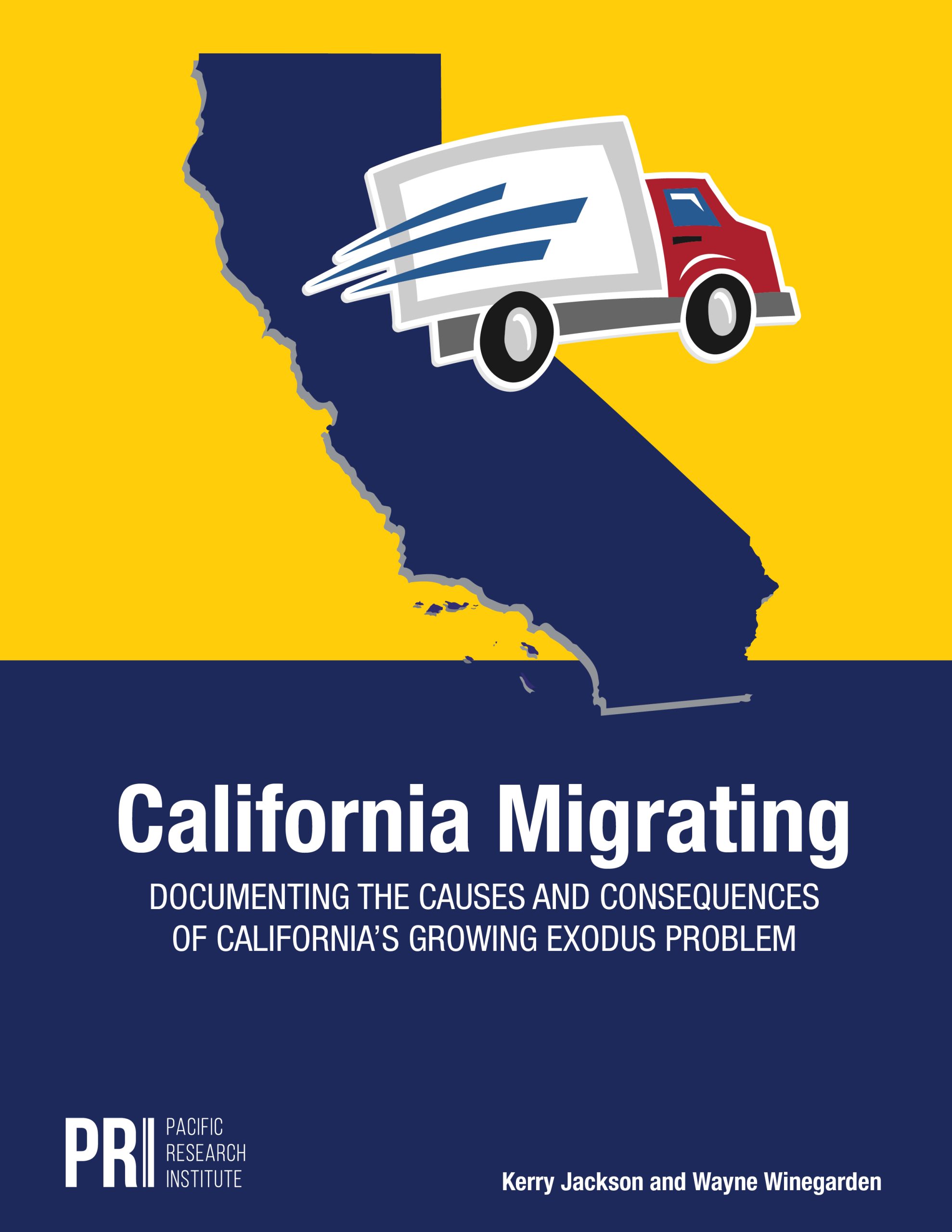Documenting California’s growing outmigration problem, a new study released today by the nonpartisan Pacific Research Institute found that harmful policy choices have increased economic and quality-of-life concerns and are chasing businesses, job opportunities, individuals of every age group and income level, and badly needed tax revenue out of state.
“The exodus from California is real and too large to ignore,” said PRI’s Kerry Jackson and Wayne Winegarden, the study’s co-authors. “The state’s increasingly detrimental policy environment creates numerous obstacles that reduce people’s quality of life and inhibits their ability to prosper, which they can overcome by relocating. Reversing these trends requires a policy overhaul. The quicker we start, the sooner we can reinvigorate the California dream.”
The new PRI study “California Migrating” takes a deep dive into who is leaving California and why. Among its findings:
• California Has Been Losing Population to Domestic Migration for Years
Using IRS data, PRI’s research looks at the total tax returns that flowed into the state (inflow) versus those that moved away (outflow), confirming recent Census data that California lost population to domestic migration every year between 2012 and 2018.
• All Income Groups are Leaving California
PRI’s analysis found that, on net, all income groups are leaving California. Low- and lower-middle-income taxpayers were the largest group, suggesting a sensitivity to higher costs of living and declining economic opportunity.
Comparing migration trends with the number of tax returns filed by income category, PRI’s research found more upper- and upper-middle income taxpayers leaving since 2017, causing an unprecedented amount of income and tax revenue to leave the state.
• All but Youngest Californians are Migrating Away
According to PRI’s research, the only age group that has consistently migrated to California is under-26. People aged 35 and older consistently migrated away between 2012 and 2018, while 26-35-year-olds have done so only since 2017.
• California “Income Premium” Illustrates How Bad Public Policy is Driving Exodus
PRI’s research documented how public policy drives up the cost of living. The study calculates that California has a 13.7 percent median household income premium versus the U.S. Factoring in state-local taxes and mortgage costs, California’s income premium becomes a 19.6 percent net income deficit compared to rest of the U.S.
• Employers Say Housing, Labor, Education, Taxes Drive Relocation Decisions
In a 2017 survey, PRI asked 200 business executives about the factors driving their California location decisions. Of the reasons cited for not locating or expanding here, 88 percent said high housing costs, and 71 percent cited labor law and regulations.
PRI scholars have published several books and studies recommending broad policy reforms to address the problems that are driving the exodus away from California, including:
• Reforming housing regulations to increase supply and affordability;
• Adopting market-based policies to lower energy costs;
• Leveraging private charities and adopting innovative approaches to alleviate homelessness; and
• Enacting a less punitive, more pro-growth tax system.

